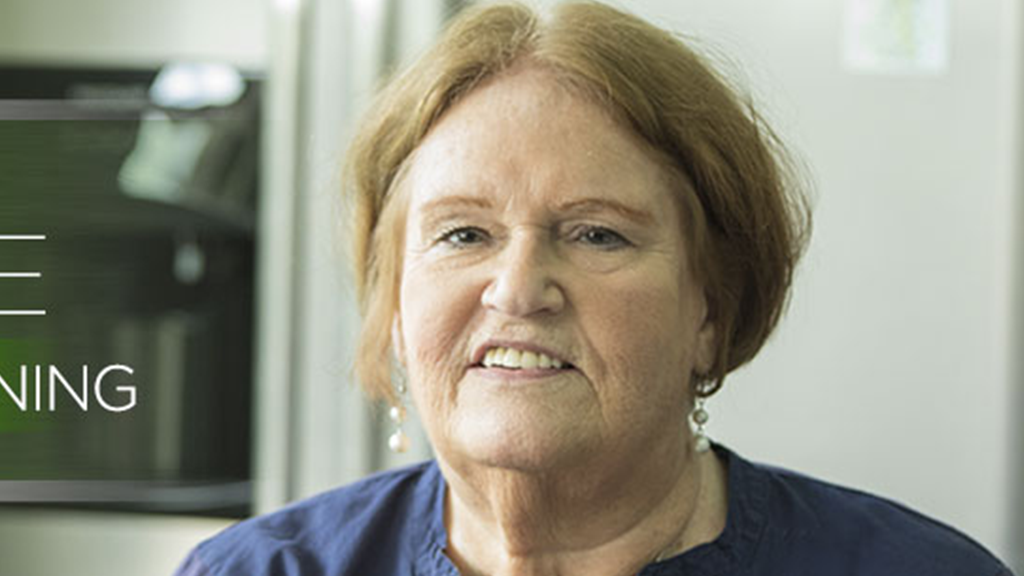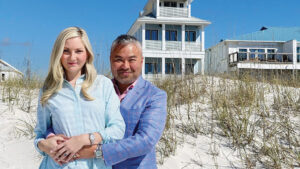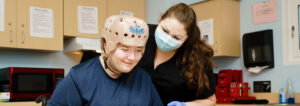Physician Didn’t Have Time for Her Own Stroke

Back to physical health resource hub
Barbara Browning, DO, was a former ER physician before going into private family practice in Fernandina Beach, Fla. As a physician, she was familiar with the signs of stroke. She was in denial when she experienced them for herself.
In hindsight, Barbara remembers noticing symptoms for a few weeks prior to her actual stroke. She felt some dizziness and her cheek was numb. She wasn’t overly concerned because she had completed a health screen the year before and no issues were detected.
Early one morning in June 2002, Barbara woke up feeling much worse. Once again, she felt dizzy. She was nauseous, her tongue was numb and her speech was slurred. As a physician, she realized what was happening. But even physicians can be in denial. She rationalized that she already missed the three hour window for tPA treatment, a powerful blood thinner that dissolves the stroke-causing blood clot, so she didn’t need to go to the emergency room.
“I had too much to do. I had both a baby shower and a funeral to attend that day. I didn’t have time for a stroke,” she said.
Her body had different plans. As she and her husband arrived at the funeral, she started vomiting and couldn’t make it inside. Her husband brought her back home where she took a shower and then called a physician colleague. He told her she had to go to the hospital immediately. There, her CT scan read positive for a stroke.
Later that same year, her younger brother was hospitalized with deep vein thrombosis, a blood clot in the deep veins in his legs. Her older brother had a stroke. It seemed far too coincidental so Barbara and her brothers had further testing done. It was determined they had a genetic clotting abnormality.
Barbara was put on an anti-coagulant medication since she was prone to another clot and another stroke. Her neurologist also cautioned that stress, too much physical strain and exhaustion were likely contributing factors for the blood clots. Barbara knew she had to give up her medical practice.
“That was really hard for me. Looking back now, I guess it was a blessing in disguise. For the first time in my life, I had to focus on myself rather than taking care of others,” she said.
Unfortunately, it didn’t stop Barbara’s second stroke in November 2005. By the time she reached the hospital, her symptoms were gone and she was released a few hours later. Although this stroke was milder than the first, she knew this was going to be an on-going battle.
Throughout her medical career, Barbara had always been a proponent of holistic medicine. After her stroke, she started attending water aerobic classes and getting acupuncture. She began working with essential oils. After doing some research, she practiced creating the right combination of oils to ease common symptoms people experience after a stroke. She also joined a local support group.
It was there that Barbara first learned about the Brooks Stroke Wellness Program at the McArthur Family YMCA. She attends the specialized program for stroke survivors two days a week. Leslie Porter, Program Specialist, says “Barbara always works up a sweat and is very self-motivated to exercise. She passes out educational information to our participants and personally invites them to attend the stroke support group that she now runs. She even makes her own essential oil formulations and hand sanitizers for other participants.”
“My husband now calls me the Witch Doctor because you can always find me with some healing concoction,” joked Barbara. Although she had to give up her medical practice, Barbara is still discovering ways to help those in need of her medical and holistic expertise.
For more information about stroke, please visit our stroke section.


